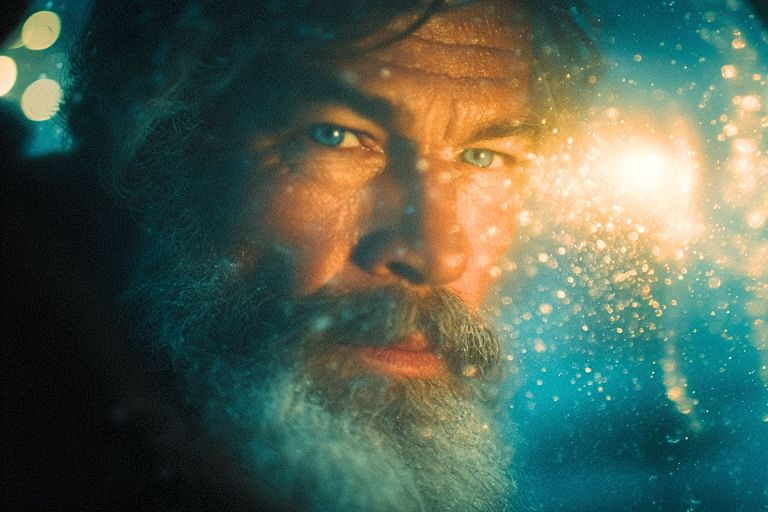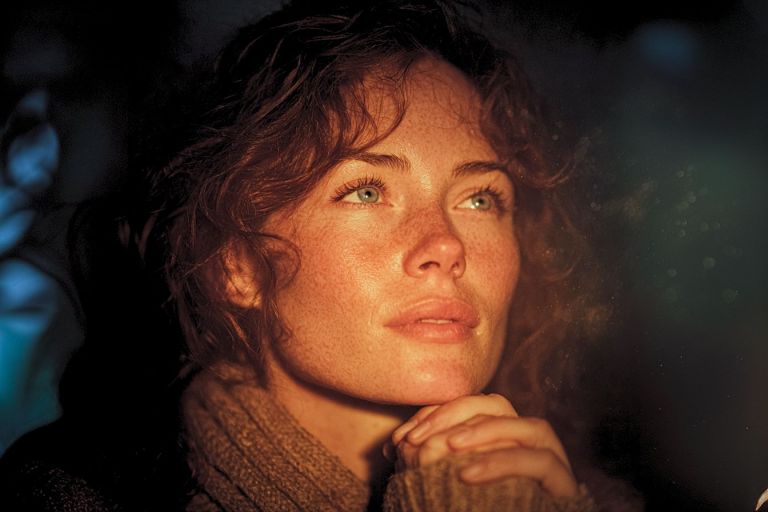
The 25 Best Lessons From The Inspirational Bestseller ‘The Road Less Traveled’
“If we know exactly where we’re going, exactly how to get there, and exactly what we’ll see along the way, we won’t learn anything. ”
By ![]() Rania Naim
Rania Naim
M. Scott Peck, the psychiatrist and author of the best-selling book “The Road Less Traveled” offered millions of readers an inspirational guide to have more fulfilling lives, focusing mostly on ideas about love and relationships and how we can overcome our childhood problems so we can grow mentally and spiritually.

1. Accepting the fact the life is difficult will make your life easier.
“Life is difficult. This is a great truth, one of the greatest truths. It is a great truth because once we truly see this truth, we transcend it. Once we truly know that life is difficult-once we truly understand and accept it-then life is no longer difficult. Because once it is accepted, the fact that life is difficult no longer matters.”
2. Your time is valuable; don’t waste it.
“Until you value yourself, you won’t value your time. Until you value your time, you will not do anything with it.”
3. Discomfort propels you to change your life.
“The truth is that our finest moments are most likely to occur when we are feeling deeply uncomfortable, unhappy, or unfulfilled. For it is only in such moments, propelled by our discomfort, that we are likely to step out of our ruts and start searching for different ways or truer answers.”
4. Uncertainty makes you grow.
“If we know exactly where we’re going, exactly how to get there, and exactly what we’ll see along the way, we won’t learn anything. ”
5. Growing up is an ongoing process.
“All my life I used to wonder what I would become when I grew up. Then, about seven years ago, I realized that I was never going to grow up–that growing is an ever ongoing process.”
6. You have to actively work on solving your own problems.
“Problems do not go away. They must be worked through or else they remain, forever a barrier to the growth and development of the spirit.”
7. Without discipline we can solve nothing.
“Discipline is the basic set of tools we require to solve life’s problems. Without discipline we can solve nothing. With only some discipline we can solve only some problems. With total discipline we can solve all problems.”
8. Focus on being a person worthy of love instead of looking for love.
“If being loved is your goal, you will fail to achieve it. The only way to be assured of being loved is to be a person worthy of love, and you cannot be a person worthy of love when your primary goal in life is to passively be loved.”
9. Courage is not the absence of fear.
“Courage is not the absence of fear; it is the making of action in spite of fear, the moving out against the resistance engendered by fear into the unknown and into the future.”
10. One must always believe in miracles.
“The mind, which sometimes presumes to believe that there is no such thing as a miracle, is itself a miracle.”
11. You have to be responsible for your own behavior.
“Whenever we seek to avoid the responsibility for our own behavior, we do so by attempting to give that responsibility to some other individual or organization or entity. But this means we then give away our power to that entity.”
12. Dependency is not love.
“Dependency may appear to be love because it is a force that causes people to fiercely attach themselves to one another. But in actuality it is not love; it is a form of anti-love. It has its genesis in a parental failure to love and it perpetuates the failure. It seeks to receive rather than to give. It nourishes infantilism rather than growth. It works to trap and constrict rather than to liberate. Ultimately it destroys rather than builds relationships, and it destroys rather than builds people.”
13. Self-love is essential to building lasting relationships.
“Not only do self-love and love of others go hand in hand but ultimately they are indistinguishable.”
14. There is no growth without suffering.
“So if your goal is to avoid pain and escape suffering, I would not advise you to seek higher levels of consciousness or spiritual evolution. First, you cannot achieve them without suffering, and second, insofar as you do achieve them, you are likely to be called on to serve in ways more painful to you, or at least demanding of you, than you can now imagine.”
15. We must teach our children how to value themselves.
“The feeling of being valuable—“I am a valuable person”—is essential to mental health and is a cornerstone of self-discipline. It is a direct product of parental love. Such a conviction must be gained in childhood; it is extremely difficult to acquire it during adulthood. Conversely, when children have learned through the love of their parents to feel valuable, it is almost impossible for the vicissitudes of adulthood to destroy their spirit.”
16. Life and death are interchangeable.
“Throughout the whole of life one must continue to learn to live,” said Seneca two millennia ago, “and what will amaze you even more, throughout life one must learn to die.”
17. Honesty is the best way to get rid of fear.
“The more honest one is, the easier it is to continue being honest, just as the more lies one has told, the more necessary it is to lie again. By their openness, people dedicated to the truth live in the open, and through the exercise of their courage to live in the open, they become free from fear.”
18. People only see what they want to see.
“Human beings are poor examiners, subject to superstition, bias, prejudice, and a profound tendency to see what they want to see rather than what is really there.”
19. The highest forms of love are inevitably totally free choices and not acts of conformity.
“As long as one marries, enters a career or has children to satisfy one’s parents or the expectations of anyone else, including society as a whole, the commitment by its very nature will be a shallow one. As long as one loves one’s children primarily because one is expected to behave in a loving manner toward them, then the parent will be insensitive to the more subtle needs of the children and unable to express love in the more subtle, yet often most important ways.”
20. Pure love is an extension of the self rather than sacrifice of the self.
“Parents who say to their children “You should be grateful for all that we have done for you” are invariably parents who are lacking in love to a significant degree. Anyone who genuinely loves knows the pleasure of loving. When we genuinely love we do so because we want to love.We have children because we want to have children, and if we are loving parents, it is because we want to be loving parents.”
21. Confusion ignites enlightenment.
“We are often most in the dark when we are the most certain, and the most enlightened when we are the most confused.”
22. The journey of spiritual growth is a lonely one.
“Even when we truly understand these matters, the journey of spiritual growth is still so lonely and difficult that we often become discouraged.”
23. Children learn by observing what you do instead of listening to what you say.
“It is not so much what our parents say that determines our world view as it is the unique world they create for us by their behavior.”
24. There is nothing beyond the limits of our vision.
“There is nothing beyond the limits of our vision. If we decide to study something, we can always find the methodology with which to do it.”
25. Giving up parts of ourselves is the only way to live.
“I learned, however, that the loss of balance is ultimately more painful than the giving up required to maintain balance. It is a lesson I have continually had to relearn. As must everyone, for as we negotiate the curves and corners of our lives, we must continually give up parts of ourselves. The only alternative to this giving up is not to travel at all on the journey of life.”











